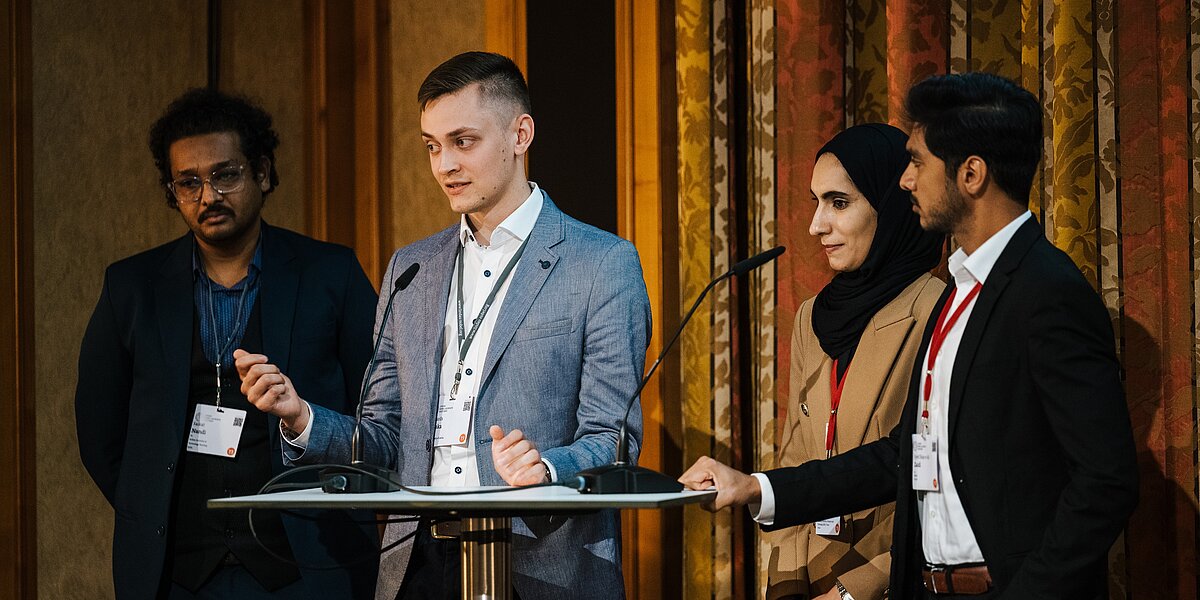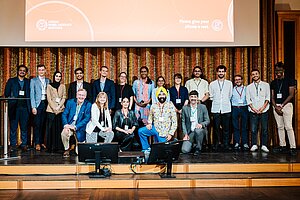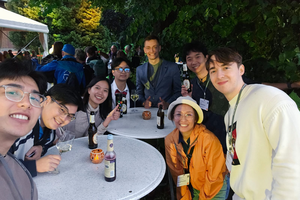
This summer, from June 30 to July 5, Lindau, Germany hosted the 73rd meeting of Nobel laureates, which this year was dedicated to physics. Latvia was represented at this event for the first time in history, as among the invited 650 young researchers was Rihards Ruska, scientific assistant of the Spectroscopy Laboratory of the Institute of Solid State Physics of the University of Latvia.
How did you get the opportunity to participate in this prestigious event?
In October of last year, the Association of Young Researchers of Latvia (LJZA) announced a competition for the opportunity to attend the meeting of Nobel laureates, students and researchers up to the age of 35 could apply. Confirmation of participation took place in two stages: in the first stage, LJZA evaluated the applications together with experts in the field and nominated two candidates (because Latvia has been allocated 2 places), in the second stage it was necessary to fill out an application form created by the organizers of the Lindau meeting. The final decision was made by the organizers of the event, taking into account the selection criteria. I was the only one who confirmed the participation from Latvia.
How did you feel when you found out you were approved?
At the very beginning, I didn't really understand what had happened (laughs). But after that it was already a great pleasure to have received approval.
Tell us briefly about the event itself, in what format was it organized?
It was six full days from early morning until late evening, the morning started with the morning rush, followed by lectures. In the afternoon you could join various discussion groups, in the evenings there were various social events. It was possible to meet Nobel laureates in a narrower circle - go for a walk around the city together, have lunch together or join a discussion group.
As part of this event, I had also applied to participate in the Hackathon, which is called Sciathon. Our team made it to the top three, and thus had the opportunity to present our idea to experts and investors. The business idea was about pesticides in nanoparticles, currently pesticides are sprayed on fields, but rainwater quickly washes them off. If they were like small balls that stick to the plant, then their effect would be longer, while the consumption of pesticides would decrease. The team included representatives from Latvia, France, Germany, India, Rwanda and Oman.
In general, the event is designed so that people get to know each other as much as possible, network and create new collaborations in the future.
What are the highlights from the event?
The presentation of our team's idea in Sciaton was a special and memorable event. In addition, I managed to play table tennis with Nobel laureate Eric Betzig, who was awarded in 2014 for his contribution to the creation of a high-resolution fluorescence microscope. On the closing day, the Nobel laureates signed the Declaration against the use of nuclear weapons, and I joined the 200 young reserachers who supported it with my signature.


What is the main lesson you got from this event?
Nobel laureates have a similar train of thought as the founders of startups: don't whine, but go and do it, and the result will come!
What keeps you from giving up when working in research?
I don't think much about it, I just go and do it! If he does, then he's already done. If I ever get down, my friends and loved ones cheer me on.
What happens next? Are there any other joint activities planned after the event?
Together with our teammates, we continue to work on Sciaton's idea, develop it further. I keep in touch with new acquaintances from all over the world. Today I received sweets from Iran, soon to come from Ireland. From Latvia, on the other hand, I sent kvass, candies and sprats. It is also planned to organize post-event regional meetings in a narrower circle.
All participants of the meetings of Nobel laureates are included in a kind of closed group where they can communicate with each other. It can help you to contact or approach a colleague in the future for joint cooperation or participation in a project.
What would you recommend to other young researchers who would like to apply for this event next year?
Since all awards, publications and participation in conferences must be listed in the application, I recommend that you apply for various scholarships early, because a scholarship is also an award. Every thing you do is important. Also, when visiting this type of event, don't forget to take souvenirs from Latvia with you.